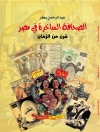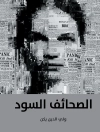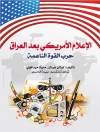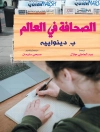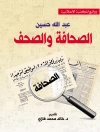In these pathbreaking essays, Roy Rosenzweig charts the impact of new media on teaching, researching, preserving, presenting, and understanding history. Negotiating between the ‘cyberenthusiasts’ who champion technological breakthroughs and the ‘digital skeptics’ who fear the end of traditional humanistic scholarship, Rosenzweig re-envisions the practices and professional rites of academic historians while analyzing and advocating for the achievements of amateur historians.
While he addresses the perils of ‘doing history’ online, Rosenzweig eloquently identifies the promises of digital work, detailing innovative strategies for powerful searches in primary and secondary sources, the increased opportunities for dialogue and debate, and, most of all, the unprecedented access afforded by the Internet. Rosenzweig draws attention to the opening up of the historical record to new voices, the availability of documents and narratives to new audiences, and the attractions of digital technologies for new and diverse practitioners. Though he celebrates digital history’s democratizing influences, Rosenzweig also argues that the future of the past in this digital age can only be ensured through the active resistance to efforts by corporations to control access and profit from the Web.
Содержание
Introduction: Roy Rosenzweig: Scholarship as Community, by Anthony Grafton
Note to Readers, by Deborah Kaplan
Rethinking History in New Media
1. Scarcity or Abundance? Preserving the Past
2. Web of Lies? Historical Knowledge on the Internet, with Daniel J. Cohen
3. Wikipedia: Can History Be Open Source?
Practicing History in New Media: Teaching, Researching, Presenting, Collecting
4. Historians and Hypertext: Is It More Than Hype?, with Steve Brier
5. Rewiring the History and Social Studies Classroom: Needs, Frameworks, Dangers, Proposals, with Randy Bass
6. The Riches of Hypertext for Scholarly Journals
7. Should Historical Scholarship Be Free?
8. Collecting History Online
Surveying History in New Media
9. Brave New World or Blind Alley? American History on the World Wide Web, with Michael O’Malley
10. Wizards, Bureaucrats, Warriors, and Hackers: Writing the History of the Internet
11. The Road to Xanadu: Public and Private Pathways on the History Web
Acknowledgments
Notes
Index
Об авторе
Roy Rosenzweig (1950-2007) was professor of history and founder of the Center for History and New Media at George Mason University. Author of several books, including
The Presence of the Past: Popular Uses of History in American Life (with David Thelen), and director of digital history projects, such as History Matters: The U.S. Survey Course on the Web and the September 11th Digital Archive, he received the Richard W. Lyman Award (presented by the National Humanities Center and the Rockefeller Foundation) for ‘outstanding achievement in the use of information technology to advance scholarship and teaching in the humanities.’


